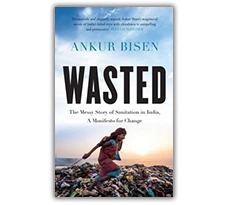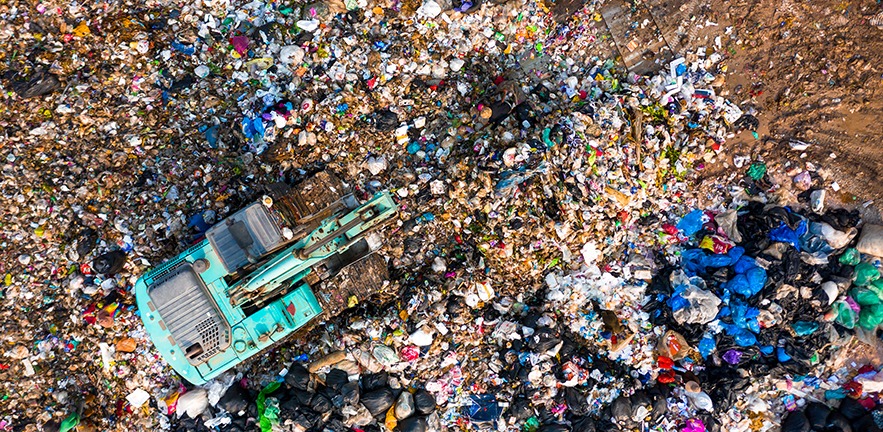Cambridge Judge Business School MBA alumnus Ankur Bisen writes an award-winning book about the ‘messy story’ of sanitation in his home country of India.

Ankur Bisen (MBA 2009), has written a book on the problems surrounding waste disposal and sanitation in his home country of India, and the book has just won the PFC-Valley of Words award for best English non-fiction.
Wasted: The Messy Story of Sanitation in India, A Manifesto for Change explores the historical and social reasons behind the challenges India faces, and why India is different to other countries in the world for these reasons.
The award comes from the Valley of Words Foundation Trust, a charity that supports creative expression through literature and the arts. The charity curates the annual PFC-VoW Awards for best writings in conjunction with the Power Finance Corporation.
We caught up with Ankur, now Senior Vice President at business advisory business Technopak in India, to talk to him about his book and what lead him to write about this important topic.
Q: Your book focuses on the issues surrounding waste management in India. What initially sparked your interest in sanitation and the environment?
During my time travelling around the world, I was regularly confronted with the stark contrast between the sanitation standards in my home country of India and those in other parts of the world. This triggered my curiosity and led to me researching the underlying reasons for this disparity.
The picture that emerged was a complex web of interdependencies with a myriad of factors, such as social contract, economic growth, urbanisation and governance. The issue of sanitation itself could not be thought of in isolation, and the impact of the larger issues of the environment and climate change also have to be factored in. Moreover, I realised that countries and regions I had initially thought had superior sanitation standards were also wanting in many aspects, such as plastic waste and e-waste. I quickly realised that there was a story here that needed to be told.
Q: Do you think we will see a change in waste disposal as the current pandemic begins to subside?

Yes definitely, this crisis has had a huge impact on the structure of many industries, forcing many people, organisations and governments to revisit their assumptions and beliefs on many issues. I believe waste disposal is no different.
For example, during the pandemic the existing supply chains of waste recycling were suspended due to lockdowns in many parts of the world. Waste recycling from one country to another was also halted. In my country a significant share of waste recycling is undertaken unofficially and is a key livelihood for many, and this too was disrupted. Once the crisis begins to subside, I think there will be a heighted discussion around insourcing waste recycling and formalising the more informal approach to waste disposal.
Another issue my country has faced during this time is that of biomedical waste, which has increased nearly fifty times from pre-COVID-19 levels in many cities, thanks to discarded PPE kits, masks and gloves etc. Processes, methods and laws around the disposal of this waste is either non-existent or not always strictly implemented. Even countries that have superior waste management mechanisms have struggled to address this sudden surge.
Q: As you mentioned earlier, you have travelled a lot for business and education. During this travel, which countries/cities have you come across that are examples of good urban and sanitation planning?
I particularly admire the Netherlands for the way they design their cities with a sustainable future in mind. Amsterdam, for example, is deploying doughnut economics to balance growth and sustainability. The city has always been a thought leader when it comes to prioritising public spaces and public transport. Council homes in the UK are a great example of a socialist mindset and approach that is needed to improve the availability of affordable housing in India. Sweden offers a great example of how the issues surrounding sanitation can be solved from the lens of the circular economy; it has successfully managed to convert waste management into an industry that now imports waste as a raw material to keep its industry running.


